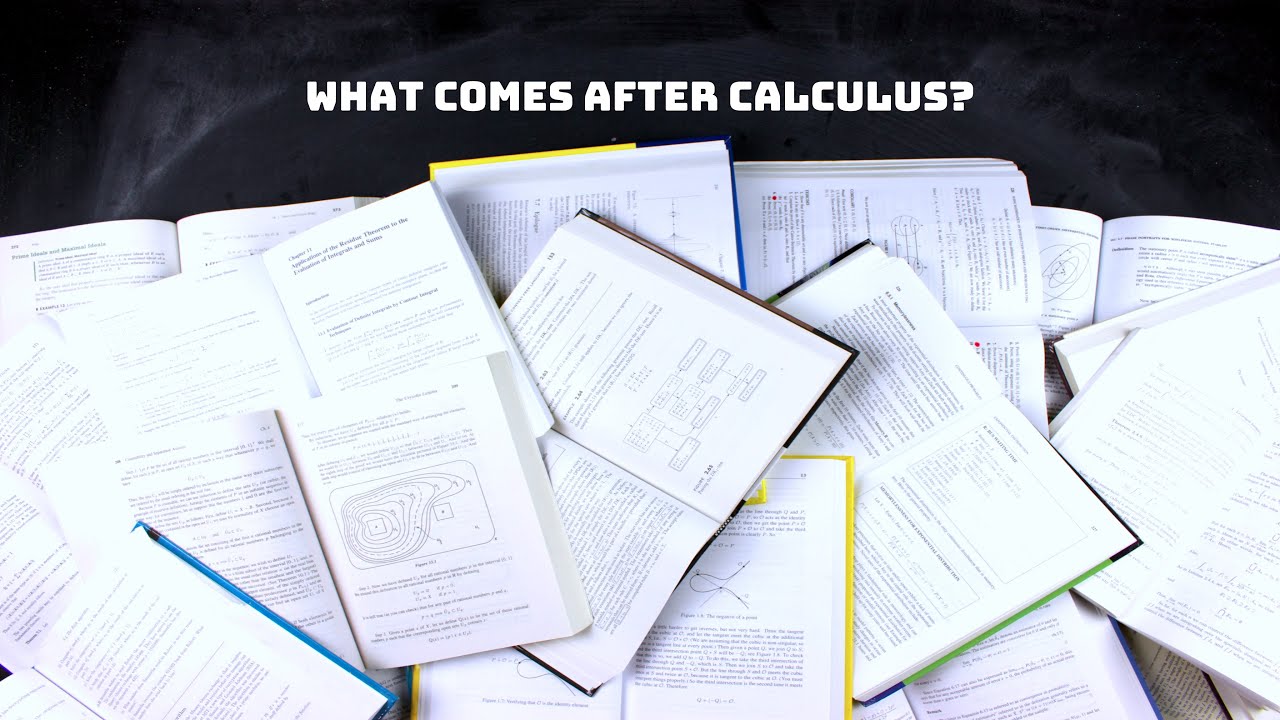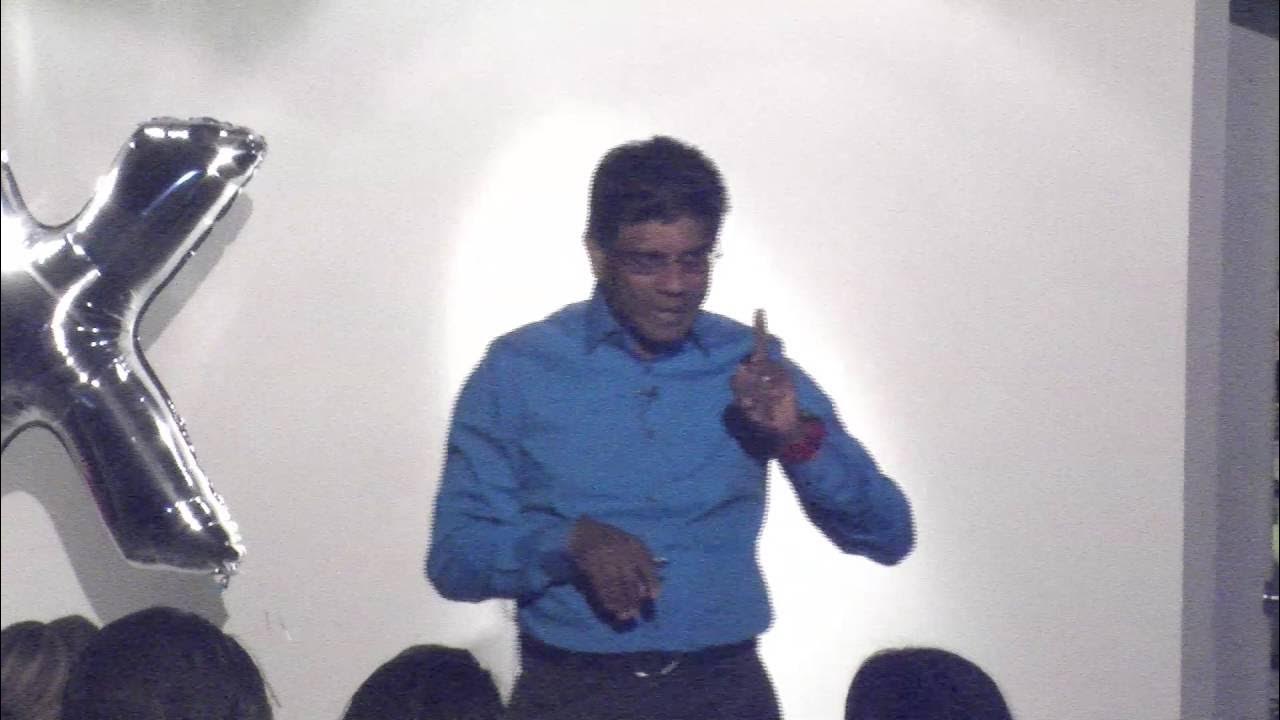My regrets studying mathematics
TLDRThe speaker reflects on their undergraduate experience studying mathematics and physics, highlighting the joy of learning and the friendships formed. They express regret over mistaking the satisfaction of good grades for genuine interest in the subject and not recognizing the broader applications and excitement of mathematical concepts beyond academic settings. They also lament not understanding the true abstract nature of math and wish they had appreciated the real-world relevance of the ideas they studied.
Takeaways
- 📚 The speaker doesn't regret the time spent studying mathematics and physics during undergrad.
- 🤝 They value the friendships and connections made through their studies in these fields.
- 🧠 Regret is expressed over confusing competence in math with genuine interest and enjoyment.
- 🏆 The desire for good grades and the perception of being good at math sometimes overshadowed a true passion for the subject.
- 🏛️ The speaker acknowledges taking difficult courses for ego satisfaction rather than genuine interest.
- 🌫️ There was a misconception about the abstract nature of math, which hindered appreciation and communication of these concepts.
- 🚪️ The abstractness of math created a barrier to entry and a sense of exclusivity that the speaker now regrets.
- 📈 The realization of the practical and interesting applications of math came later through external sources like Vsauce and 3Blue1Brown.
- 🔄 The speaker wishes they had a deeper understanding and ability to communicate math concepts during their studies.
- 🌟 Despite some regrets, the speaker still found inspiration in their studies, which is reflected in their current passion for math.
- 💭 The speaker encourages viewers to reflect on their own experiences and relate to the shared insights.
Q & A
What are some aspects of studying mathematics that the speaker does not regret?
-The speaker does not regret the time spent studying mathematical ideas and the relationships formed with lecturers and peers during their mathematics journey. They also appreciate the friendships made through math classes, some of which became their best friendships.
What misconception did the speaker have about their own math abilities?
-The speaker mistakenly believed they were good at math simply because they could get good grades on courses and enjoyed the satisfaction that came from doing well in math. This led to a confusion between enjoying the subject and enjoying the feeling of accomplishment from grades.
Why did the speaker take certain math courses according to their own admission?
-The speaker took some courses to boost their ego and because they perceived these courses as notoriously difficult, thinking it would make them appear to be better at math. This was more about perception and self-satisfaction rather than genuine interest in the subject matter.
How did the speaker's perception of math change after watching a Vsauce video?
-After watching a Vsauce video on the brachistochrone problem, the speaker realized that math concepts they had previously studied could be interesting and applicable in real-world contexts. This made them see the subject in a new light and regret not understanding this during their studies.
What is the speaker's second major regret in their mathematics studies?
-The speaker's second major regret is thinking that some math concepts were more abstract than they actually were. They felt that the abstract nature of math created a barrier and led them to not appreciate the bigger picture or the real-world relevance of the ideas they were studying.
How did the speaker's approach to studying math differ from what they wish they had done?
-The speaker wishes they had been more aware of what they truly enjoyed in math and had focused on understanding and communicating the bigger picture of mathematical ideas. Instead, they studied mainly to excel in exams without much consideration for the practical applications or deeper meanings of the concepts.
What role did external perceptions play in the speaker's choice of math courses?
-External perceptions significantly influenced the speaker's choice of courses. They were drawn to classes perceived as prestigious or difficult, believing it would enhance their reputation as being good at math, rather than choosing courses based on genuine interest.
How did the speaker's view of math change after graduation?
-After graduation, the speaker's view of math changed as they began to see the real-world relevance and cool applications of mathematical concepts they had previously studied. They realized that these ideas were interesting and wished they had understood this during their studies.
What advice would the speaker give to current math students based on their experiences?
-The speaker advises math students to be more aware of their true interests and to not solely focus on grades. They suggest that students should strive to understand the bigger picture and real-world applications of mathematical concepts, and to communicate these ideas effectively to others.
What resource did the speaker find helpful in seeing the practical applications of math?
-The speaker found Vsauce videos, and later 3Blue1Brown, helpful in seeing the practical applications and deeper meanings of mathematical concepts, which made them more engaging and interesting.
How does the speaker feel about their overall experience studying mathematics?
-The speaker feels overall positive about their experience studying mathematics, acknowledging that they gained a lot from it. However, they also express some regrets about how they approached their studies and wish they had been more engaged with the subject in a way that appreciated its real-world relevance.
Outlines
📚 Reflections on Studying Mathematics: The Upsides
This paragraph offers a personal perspective on the author's journey through studying mathematics alongside physics, emphasizing the absence of regrets for the time dedicated to exploring mathematical concepts over other activities. The author values the time spent learning and the meaningful connections made with peers and lecturers through their mathematical endeavors. Despite acknowledging some regrets which will be discussed, the overall sentiment towards choosing mathematics as a major is positive, highlighting the fulfillment derived from academic achievements and the enjoyment of certain mathematical challenges, such as dynamical systems. However, the author hints at a deeper exploration of their academic choices and the distinction between enjoying the process of learning versus the satisfaction derived from academic success.
🤔 Navigating Regrets and Realizations in Math Education
In this paragraph, the author delves into their regrets and realizations regarding their approach to studying mathematics. Initially, they critique their past assumption that good grades equated to a genuine understanding and enjoyment of math. This misconception led to a pursuit of challenging courses more for the sake of ego and external perceptions than for personal interest or enjoyment. A significant turning point came from engaging with popular math-related content outside the academic sphere, such as Vsauce and 3Blue1Brown, which helped the author appreciate the real-world relevance and intrigue of mathematical concepts previously confined to academic exercises. These experiences underscored the value of connecting abstract mathematical ideas to broader contexts, revealing a missed opportunity for deeper engagement and appreciation during their studies.
Mindmap
Keywords
💡Undergrad
💡Regrets
💡Mathematical Ideas
💡Dynamical Systems
💡Abstract
💡Ego
💡Perception
💡Vsauce
💡3Blue1Brown
💡Communication
💡Self-Confidence
Highlights
The speaker reflects on their undergraduate experience studying mathematics and physics, highlighting both the aspects they don't regret and the areas of regret.
They express no regret over the time spent studying mathematical ideas, valuing the learning process over other activities.
The speaker cherishes the friendships and connections made through studying mathematics, including with lecturers and peers.
Despite enjoying their major, the speaker regrets conflating good grades with genuine interest and enjoyment in mathematics.
The speaker acknowledges a personal drive for satisfaction and recognition, which sometimes influenced their choice of courses.
There was a misconception that difficulty in math courses was a measure of prestige, leading to a focus on challenging oneself rather than pursuing genuine interests.
The speaker regrets not recognizing earlier that some areas of math they studied were more abstract and less practical than they initially perceived.
The feeling of being part of an exclusive club due to understanding complex math concepts created a barrier to communicating these ideas to others.
The speaker's perspective on math was changed by an engaging Vsauce video that connected theoretical concepts to real-world applications.
The realization came that math concepts learned in university could be interesting and engaging when presented in the right context.
The speaker wishes they had a deeper understanding of the practical applications and broader significance of the math concepts they studied.
After graduation, the speaker discovered a renewed appreciation for math through channels like 3Blue1Brown, which presents mathematical ideas in an accessible and fascinating way.
The speaker regrets not trying to understand how to communicate math concepts to others, which could have enhanced their own appreciation and understanding.
The speaker's passion for math was present but inconsistent during their university years, and it has since grown through creating content for YouTube.
The speaker encourages viewers to reflect on their own experiences and relate to the shared insights about studying mathematics.
Transcripts
5.0 / 5 (0 votes)
Thanks for rating:





